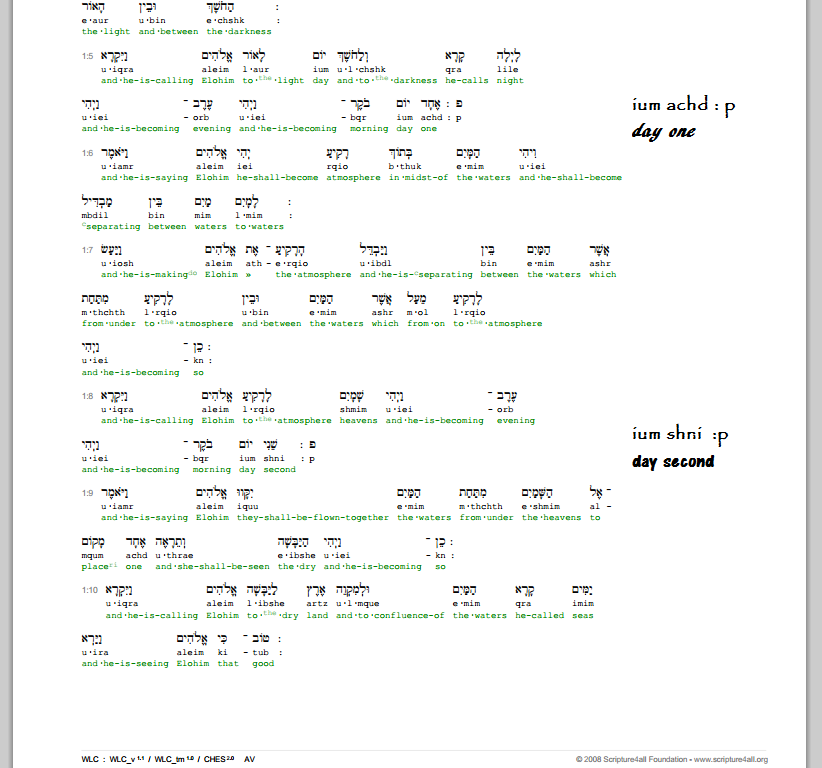- Jun 21, 2009
- 10,783
- 414
I suppose this is where we could call on "experts" and all that but I don't think I want to start that kind of thing again.
Instead, I'd like to take a look for ourselves. I've mentioned the free online Hebrew Interlinear before. It's not my "favorite" translation and I'll assume that readers of the Bible Study forum know the differences between highly accurate "interlinear" translations and other translations already. Interlinear texts repeat the same text in multiple lines and strive to line up each original word with exact word/phrases directly underneath. This one uses the Hebrew original, a transliterated word and underneath English.
online Hebrew Interlinear Bible © 2008 Scripture4all Foundation - www.scripture4all.org

Instead, I'd like to take a look for ourselves. I've mentioned the free online Hebrew Interlinear before. It's not my "favorite" translation and I'll assume that readers of the Bible Study forum know the differences between highly accurate "interlinear" translations and other translations already. Interlinear texts repeat the same text in multiple lines and strive to line up each original word with exact word/phrases directly underneath. This one uses the Hebrew original, a transliterated word and underneath English.
online Hebrew Interlinear Bible © 2008 Scripture4all Foundation - www.scripture4all.org

- A cardinal number tells "how many." Cardinal numbers are also known as "counting numbers," because they show quantity.
- Ordinal numbers tell the order of things in a set—first, second, third, etc. Ordinal numbers do not show quantity. They only show rank or position.






